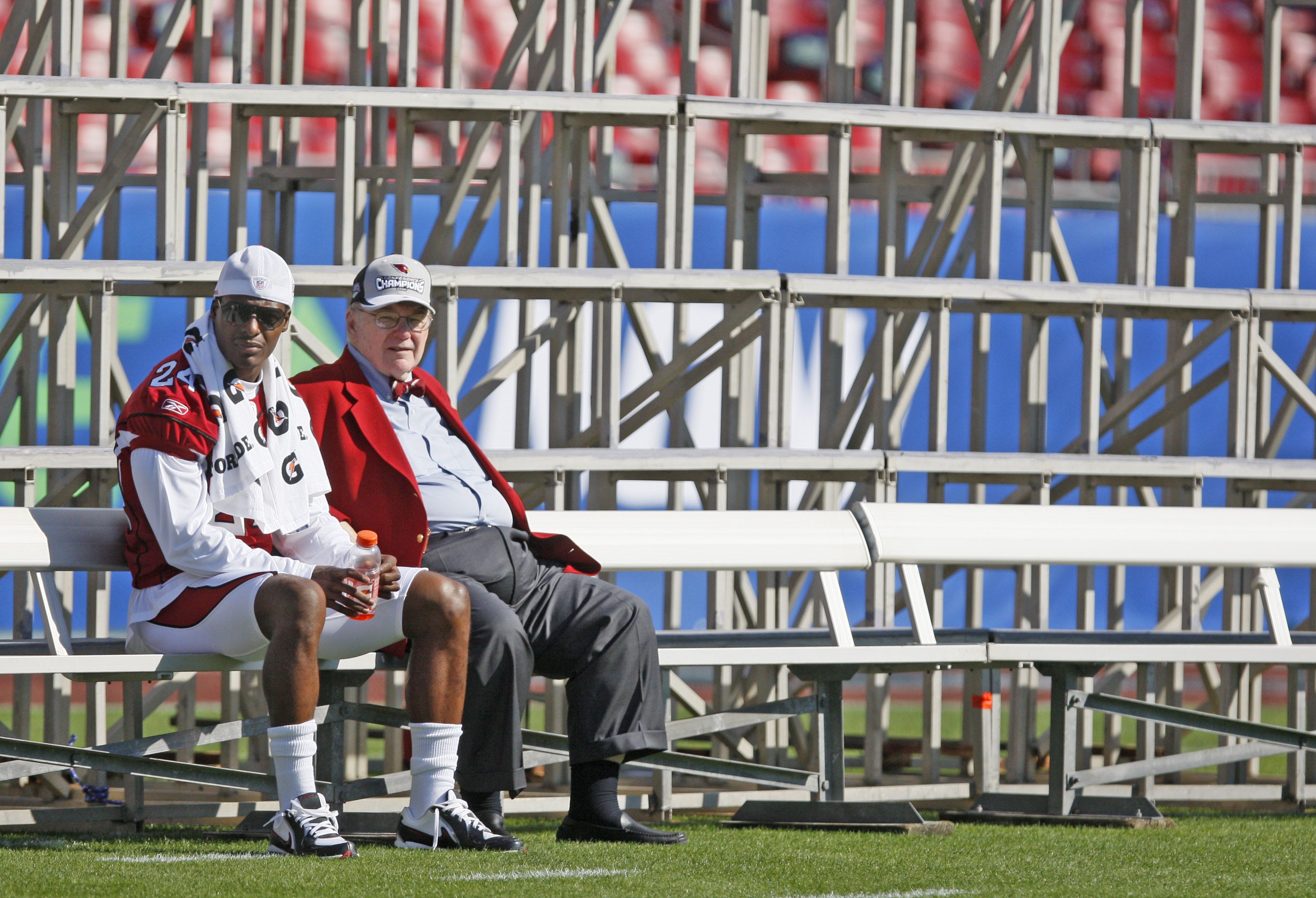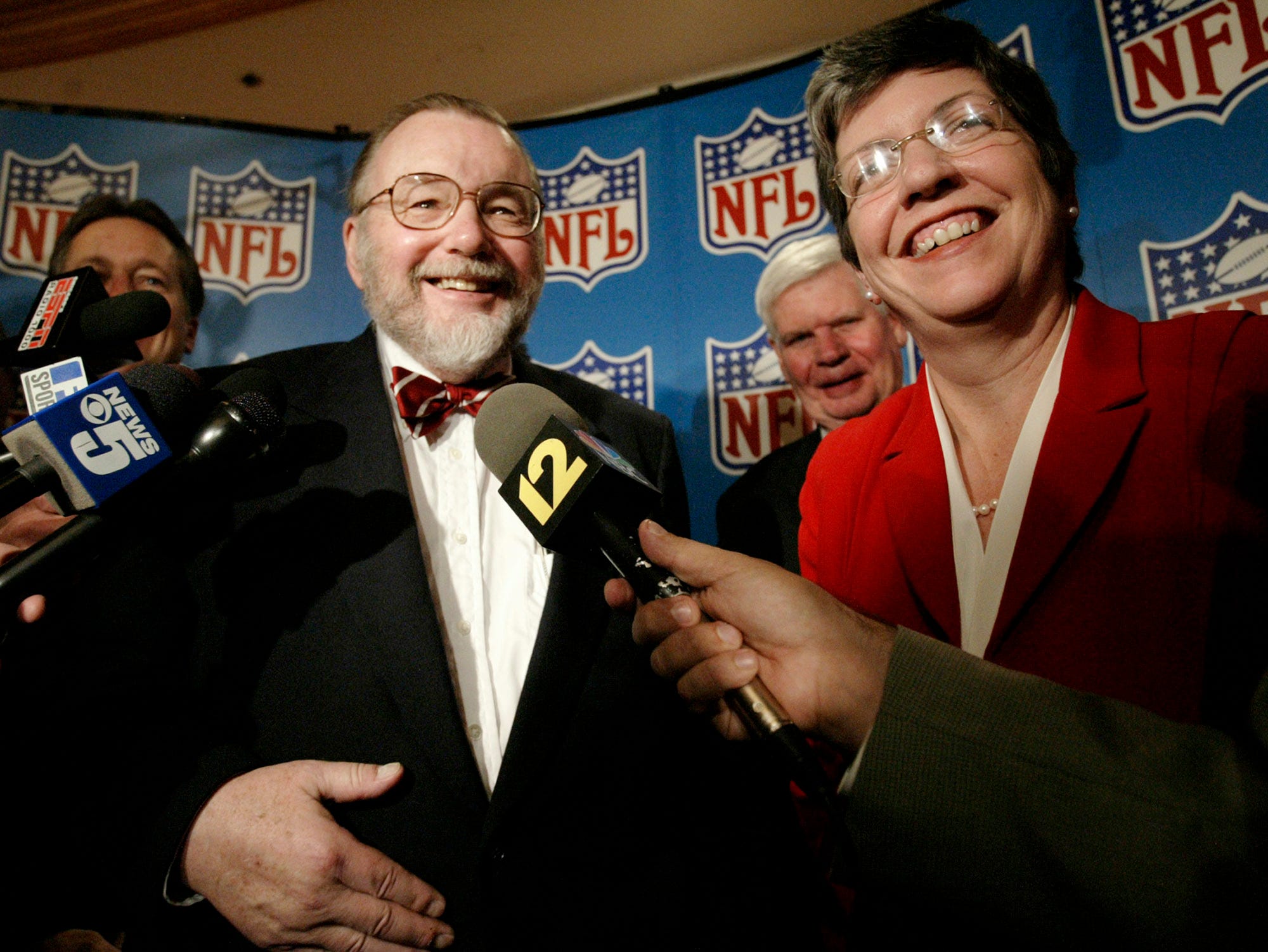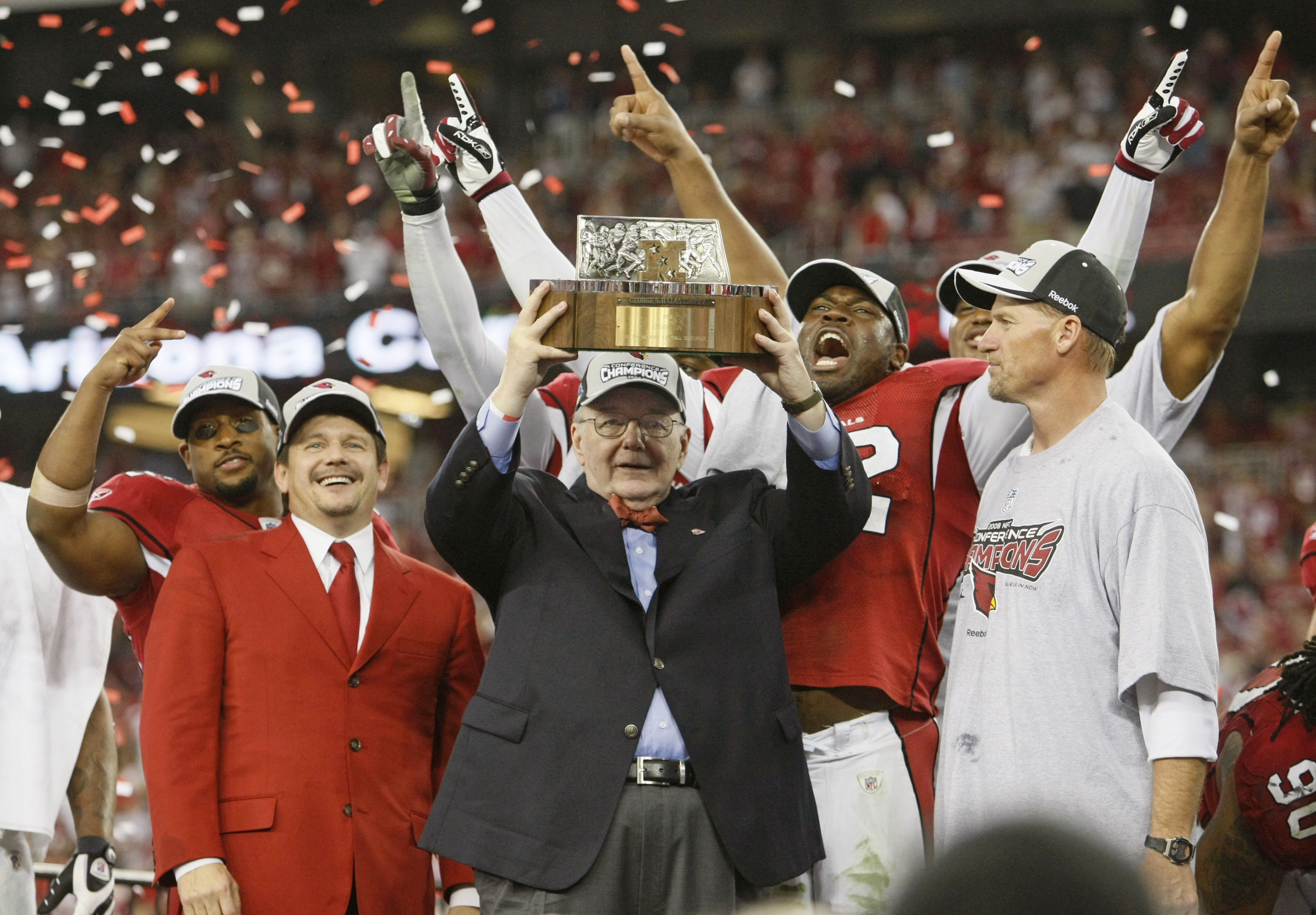Opinion: Got time for a story? Late Arizona Cardinals owner Bill Bidwill almost always did
As Arizona Cardinals owner, Bill Bidwill loved to make the rounds at the team’s headquarters in Tempe, often wearing a fly-fishing vest, the ones with a thousand pockets, and carrying a cup of coffee.
When “Mr. B” stopped in for a visit, any veteran employee wanted to know one thing:
How much coffee was in the cup?
“If the coffee cup was full,” said former public relations director Paul Jensen said, “you were in for some stories.”
Stories about the NFL in the 1930s, 40s and 50s. Stories about Chicago, Bidwill’s hometown. Stories about the Navy, in which he served. Stories about coffee in the Navy. Stories about trains and ships and cars and gangsters and food and prep school and college.
As a Cardinals beat writer for 20 years or so, I heard many stories from “Mr. B.” Including the same stories over and over again.
The popularity of “The Pump Room” in Chicago when train travel was popular. The personalities on the Cardinals' only championship team in 1947. Attending Georgetown Prep and Georgetown University.
As I wrote this, it occurred to me that Bidwill, who died Wednesday at age 88, was never the star of his own stories. They never centered around a funny thing he said. Or a heroic act he performed. Or how charitable he was.
Bidwill was a private man in a public business and rarely revealed what he thought, or how he felt.
BILL BIDWILL: Arizona Cardinals owner dies at 88
'AN ARIZONA ICON': Gov. Doug Ducey mourns loss of Cardinals owner Bill Bidwill

In public, he seemed awkward and shy.
But if he knew you, Bidwill would let you see the other side of his personality, the one that liked corny jokes, and bawdy ones. The one whose sense of humor was biting and almost always dry.
On Wednesday, receiver Larry Fitzgerald told the story of his first visit to Arizona after the Cardinals drafted him in 2004. Fitzgerald and his father, Larry Sr., met with Bidwill and his son, Michael, in Bidwill’s office, and Bidwill told them stories about Pat Tillman, who had been killed the day before, as well as stories about players of yesteryear.
As Bidwill told Fitzgerald he was happy to have him as a Cardinal, Fitzgerald looked over and saw Larry, Sr., sound asleep.
“We’re talking about mouth wide open,” Fitzgerald said.
Fitzgerald, Jr., was horrified. He and Bidwill made eye contact and both smiled. A connection was made.
“I knew I was going to get along with him from day one,” Fitzgerald said, “and we got closer as time went on.”
It’s a side of Bidwill that most of the public didn’t see. Some people say Bidwill was socially awkward, and I suppose that was true. For whatever reasons, he had no interest in public appearances or in giving reporters a pithy quote to build a story around.
Bidwill would buy a table for a charity’s fundraising dinner, but sitting at the table with a bunch of people he didn’t know wasn’t enjoyable for him. So he didn’t do it.
Sometimes, it seemed Bidwill did things for his own amusement. It happened in 1988 before Bidwill decided to move the franchise to Arizona. Other cities were in contention, and a good number of them sent reporters to St. Louis to wait for the decision.
Bidwill seemed to take delight in giving them no news.
From the time the Cardinals moved to Arizona in 1988, Bidwill made charitable donations throughout the community and went out of his way to keep people from knowing about it.
When Jensen suggested that it might be good for the public to see that side of him, Bidwill shut the idea down.
A devout Catholic, Bidwill believed bragging about charitable donations was unseemly.
“I don’t need to beat my chest about that stuff,” he told Jensen.
Bidwill’s reputation was as a terrible owner. And judged by the way most of his teams played over the years, it was impossible to argue.

But he made significant contributions to the NFL over the years. Adele Harris, the team’s former community relations director, was the first minority female executive in NFL history. Bob Wallace, the former general counsel, was the first African-American to negotiate contracts in the NFL.
For years, the only non-white faces at the league's annual meetings were Cardinals employees.
Bidwill was devoted to the NFL and sometimes sacrificed what was good for the Cardinals for what was good for the NFL.
“He had great respect for the fiber and fabric of the National Football League,” former coach Dave McGinnis said. “He was a very honest man to work for. If he told you something, you could count on it.”
Bidwill didn’t openly pine for the old days of the NFL, but never hid that he liked things better then. The growth of the Cardinals staff, from the marketing department to ticket sales to broadcast and digital news, bemused him.
Bidwill stopped by the pressroom at Cardinals headquarters often, even though many of us there had criticized him over the years. If that ever got under his skin, he didn’t show it, and he’d ask us if we heard this one about the 1947 team, or that one about what went on during the train rides in the 40s.
Actually, he rarely asked, now that I think about it. He just launched into a story.
What he never told us was the news about this year’s team. Why that guy was cut, or if that one was going to get a contract extension.
Questions about the present were conversation killers.
Bidwill would shrug with his palms facing up and walk away.
“In his own way,” Jensen said, “he was a piece of work.”
Follow the Arizona Republic's Kent Somers on Twitter @kentsomers.
